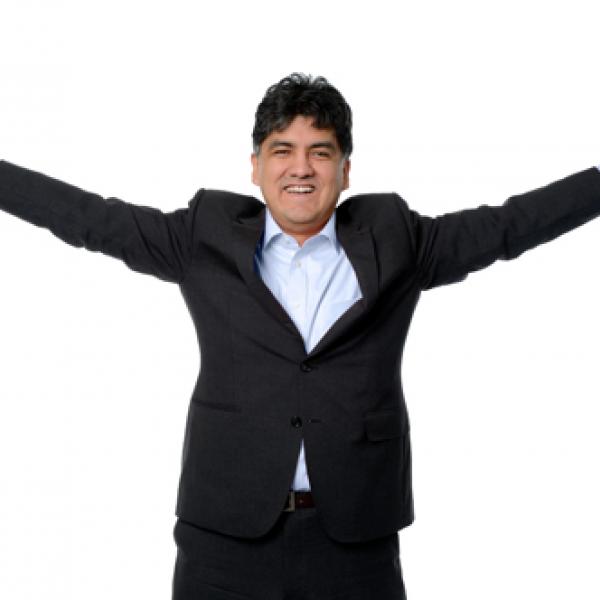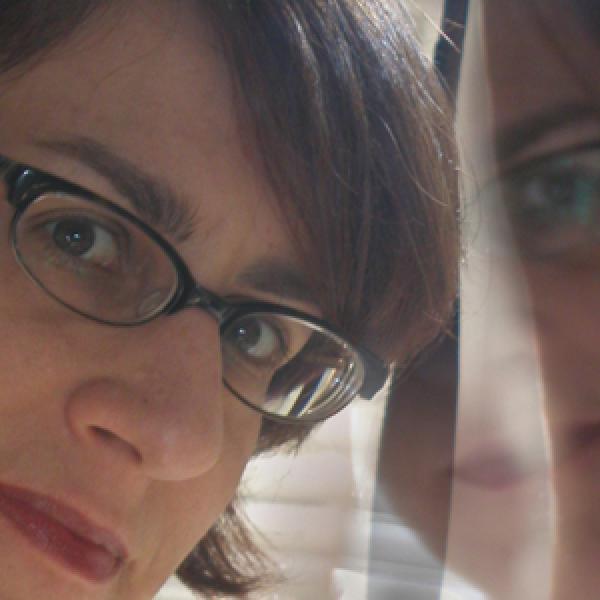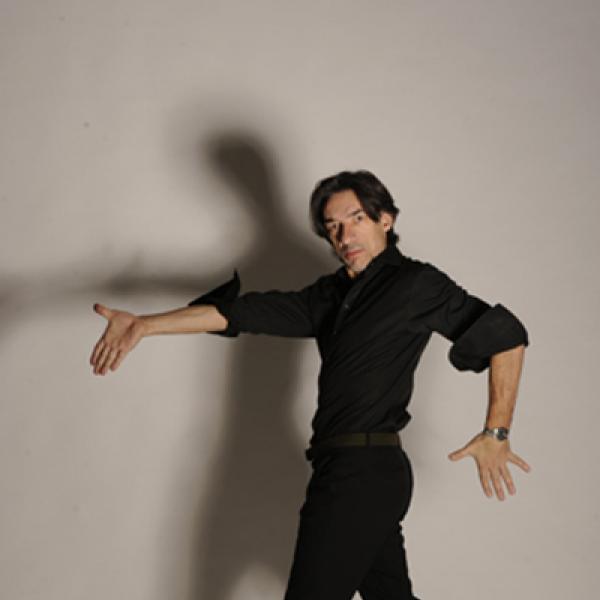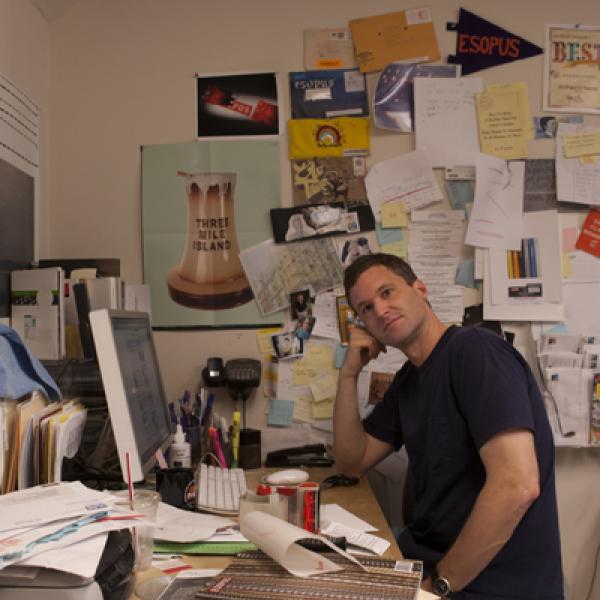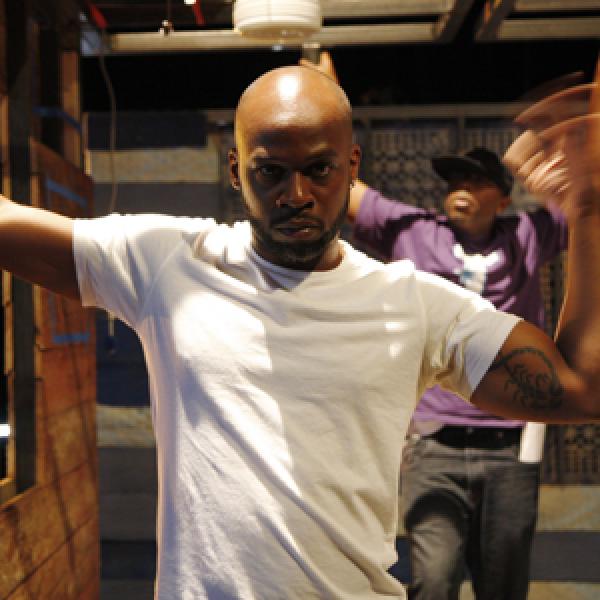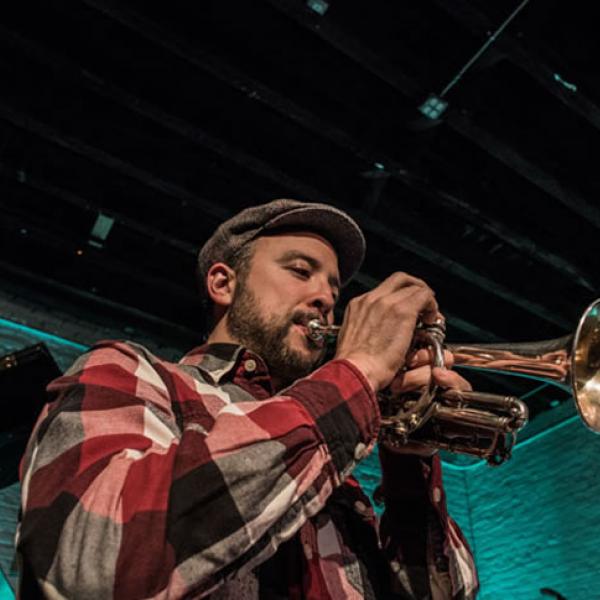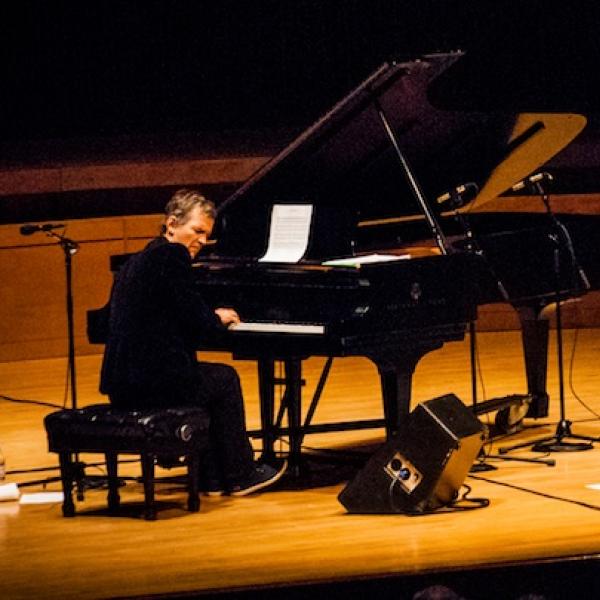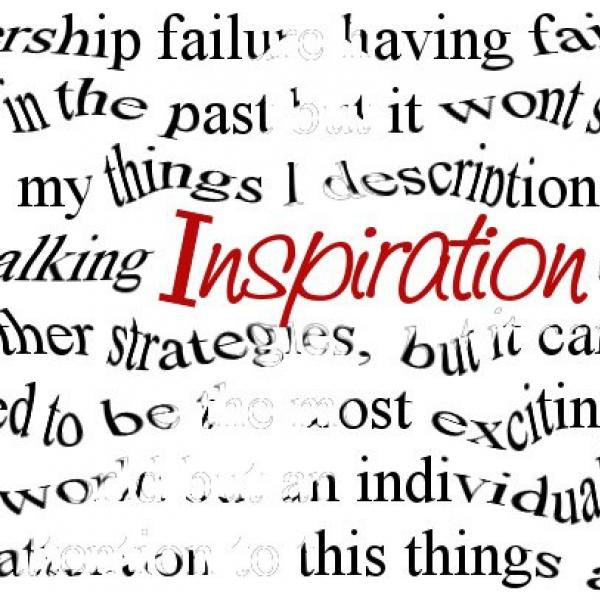Chris Thile
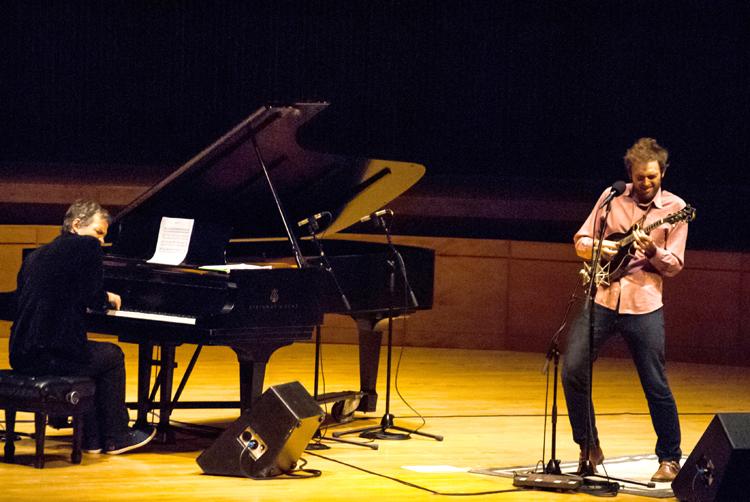
Brad Mehldau and Chris Thile at the Clarice Smith Performing Arts Center at the University of Maryland in April 2013. Photo by Dylan SIngleton
Chris Thile is a genius, at least according to the MacArthur Foundation, which awarded him a “genius” fellowship in 2012, making him one of the youngest recipients at age 31. A virtuoso on the mandolin, Thile started his career with the popular Grammy Award-winning group Nickel Creek before moving on to his current ensemble, Punch Brothers. Both groups subverted the idea of “bluegrass music,” creating a contemporary sound with the traditional instrumentation. In addition, he has played with a variety of musicians in other genres of music, including Yo-Yo Ma, Edgar Meyers, Stuart Duncan, Béla Fleck, Mark O’Connor, Michael Daves, and Brad Mehldau. He has written a mandolin concerto, and is as at home playing classical music as he is improvising in bluegrass or jazz. We caught up by phone with Thile to talk with him about music and inspiration.
How Inspiration Works
The quality of your art is directly proportional to how hard you work at it. I don’t subscribe to the lightning bolt...the kind of “waiting for lightning to strike” thing. When lightning does strike it is a wonderful, wonderful experience, but I would also say lightning strikes lightning rods a hell of a lot more often than it just strikes random things. Musicians need to be erecting lightning rods. Basically, working on your craft is erecting a lightning rod. You give inspiration a lot more windows to climb through if you’re working. That’s how I approach it. When my days are full of music, I am a happier musician.
Earliest Musical Memories
My earliest memories are of music. I can remember hearing Stan Getz and [Antonio Carlos] Jobim and the Gilbertos playing “The Girl from Ipanema.” I can remember listening to that in my parents’ house and not being able to understand the English any better than the Portuguese.
And then hearing Earl Scruggs play “Sally Ann,” his weird version of “Sally Ann” that’s not actually like the real version of “Sally Ann” but, like, unbelievable…. Listening to NPR and even the NPR theme, loving that, and loving hearing Peter Ostroushko play the mandolin on Prairie Home Companion…my parents eventually playing the Beatles’ Rubber Soul in the house, and then my parents starting to take me to this pizza place where a little bluegrass band would play every Saturday night.
They were all such transcendent moments for me. Before I would know it, it would just take me—an insanely energetic kid—and it would arrest me. It would disarm all of my senses or engage all of my senses. To me, sometimes the greatest art, I feel like it’s almost this disarming thing and all of a sudden your defenses are down and alien perspectives are washing over you. You could think of it as infecting you, or you could think of it as nourishing you. I feel like with great music, I always had the easiest time sort of surrendering my reservations and the weapons I use against life.
A Different Approach to Genre
[My music has] a bluegrass tone of voice, but what’s being said is a little bit different. I kind of feel that, at the end of the day, a genre is about as important as the tone of someone’s speaking voice. And how important is that really? I don’t think it’s that important; I think [what’s important] is what they are saying.
We will all have the same material laid out in front of us, and it’s how we choose to assemble it. And that’s what I am interested in—how different individuals or collections of individuals assemble the material that is available to all of us. And I am less concerned about the veneer, which is where I think genre is concerned.
I am not saying that that is unimportant. It’s a choice that Punch Brothers made to essentially play bluegrass instruments. I kind of feel like the boys and I chose our instruments at so young an age [that] it was almost like your speaking voice developing. So it’s happenstance that we all found bluegrass, that we were all raised sort of on bluegrass. At a certain point, you realize that the things you love the most about bluegrass, about a given genre, have nothing to do with that music existing in that genre.
When I was 18, I would go to Tower Records with this plan—I am going to buy four records: one in the folk world, one in the classical world, one in the pop world, one in the jazz world. That was kind of how I looked at music at that point. I would go home and listen and learn the stuff and practice and try and learn what people from what I considered to be these kinds of separate disciplines would do. And when I heard great music from each, I was just blown away. Then I would try to find more music like that within that genre. I was establishing my own musical aesthetic.
The Importance of Collaboration
Diversifying is as important to a musician as it is to a portfolio. Brad [Mehldau] was one of those musicians that helped me to see beyond thinking in terms of what a great jazz song this is, or what a great pop song this is.
What I love is playing with someone like Brad or people like my buddy Michael Daves in this rip-roaring, honky bluegrass deal. The thing with Michael, for instance, it’s very improvisational, so the stuff that Brad and I have gotten into (on the rare occasions we’ve gotten to play together) has helped me get to some crazy, cool new places with Michael. And the reckless, devil-may-care attitude that Michael has—he just rears back and lets it fly—has helped Punch Brothers become more visceral. Getting to make music with Yo-Yo Ma—he’s so interested in his collaborators’ point-of-view as human beings, where they are coming from as humans, as he is with any aspect of music making, and I found that incredibly inspiring. That can give the music depth I don’t think you could get any other way. And the clarity of Edgar Myers’ musical thought has impacted every collaboration I have ever had, and my whole life as well.


